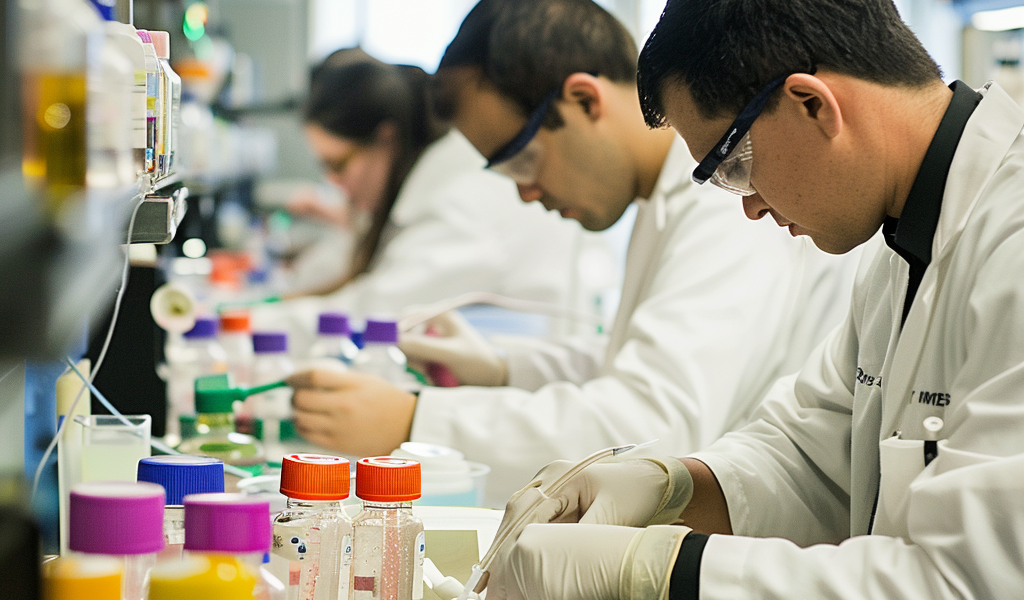MIT Engineers Develop Groundbreaking Method to Protect Microbes from Extreme Conditions
MIT engineers have discovered a groundbreaking method to protect microbes from extreme conditions, potentially revolutionizing the way microorganisms are used in various industries.
Microbes utilized in health, agriculture, and other sectors must endure harsh environments, including the rigorous manufacturing processes involved in creating long-term storage tablets. In response to this challenge, researchers at MIT have devised an innovative technique to enhance the resilience of microbes against these severe conditions.
Their approach entails blending bacteria with food and drug additives from a selection of compounds classified as ‘generally regarded as safe’ by the FDA. Through extensive experimentation, the team has identified formulations that effectively stabilize a range of microbes, including yeast and bacteria. These formulations have proven capable of withstanding high temperatures, radiation, and industrial processing that would typically harm unprotected microbes.
In an extraordinary demonstration of their method’s effectiveness, certain microbes recently returned from a voyage to the International Space Station. The researchers are currently evaluating the microbes’ ability to endure the extreme conditions encountered during their space journey.
Giovanni Traverso, an associate professor of mechanical engineering at MIT and a gastroenterologist at Brigham and Women’s Hospital, spearheaded the project aimed at stabilizing organisms for extreme conditions. The study’s lead author, Miguel Jimenez, a former MIT research scientist now serving as an assistant professor of biomedical engineering at Boston University, played a crucial role in the research.
The initiative, which is detailed in a paper published in Nature Materials, was initiated about six years ago with support from NASA’s Translational Research Institute for Space Health (TRISH). The research team embarked on developing novel strategies to enhance the resilience of beneficial bacteria, such as probiotics and microbial therapeutics.
Traverso’s lab initially examined 13 commercially available probiotics and discovered that six of these products contained fewer live bacteria than indicated on the label. This revelation prompted the researchers to explore ways to address the discrepancy and bolster the resilience of these valuable microorganisms.
Speaking on the project’s implications, Traverso emphasized its broad applicability, ranging from space missions to human health and agricultural practices. The team’s innovative approach holds immense promise for advancing the utilization of microbes in diverse fields.





